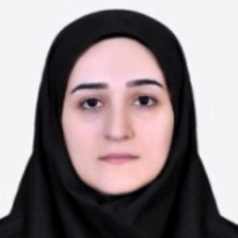International Journal of Information Technology and Computer Science (IJITCS)
IJITCS Vol. 6, No. 1, 8 Dec. 2013
Cover page and Table of Contents: PDF (size: 416KB)
Author(s)
Index Terms
Social Networks, Clustering, Community, Modularity, Random Walks
Abstract
As we know, the datasets related to social networks are increasing. There are different procedures to analyze these types of datasets; one of these procedures is clustering which makes communities of social data. Random walk is a process which can find communities in a network, in other words when a random walk is used, it scans the nodes in some steps; it begins with an initial node and based on a random process progresses to neighboring nodes. In this paper an algorithm is proposed which aims to finding communities in a way that modularity factor increases, for this goal, random walks with random local search agent are combined. Experimental results show that the proposed method gives better modularity in comparison with other algorithms.
Cite This Paper
Narges Azizifard, "Social Network Clustering", International Journal of Information Technology and Computer Science(IJITCS), vol.6, no.1, pp.76-81, 2014. DOI:10.5815/ijitcs.2014.01.09
Reference
[1]Chen J, Zaiane OR, Goebel R. Detecting Communities in Social Networks using Max-Min Modularity. In: SIAM International Conference on Data Mining, Sparks, Nevada, USA. 2009. 1-12.
[2]Sathik MM, Senthamarai KS, Rasheed AA. Comparative Analysis of Community Discovery Methods in Social Networks. J Computer Applications. 2011. 14(8): 0975 – 8887.
[3]Qi Z, Ying.Hong M. An Algorithm to Detect Community by Geodesic Line in Social Networks. J Advances in Information Sciences and Service Sciences. 2011.3(6).
[4]Pizzuti C. Community detection in social networks with Genetic Algorithms. In: Proceedings of the 10th annual conference on genetic and evolutionary computation. 2008. 1137-1138.
[5]Fortunato S. Community Detection in Graphs. J Physics Reports. 2010. 486(3-5): 75-147.
[6]Newman MEJ, Girvan M. Finding and evaluating community structure in networks. J Physical Review E. 2004. 69(2): 026113.
[7]Dubes RC, Jain AK. Algorithms for Clustering Data. Prentice-Hall, Englewood Cliffs. 1988.
[8]Steinhaeuser K, Chawla N. Identifying and evaluating community structure in complex networks. J Pattern Recognition Letters. 2010. 31(5): 413-421.
[9]Xu X, Yuruk N, Feng Z, Schweiger TAJ. SCAN: a structural clustering algorithm for networks. In: international conference on Knowledge discovery and data mining. 2007. 824-833.
[10]Danon L, Duch J, Guilera AD, Arenas A. Comparing community structure identification. J Stat Mech 2005. 9: P09008.
[11]Ovelgonne M, Geyer-Schulz A, and Stein M. Randomized Greedy Modularity Optimization for Group Detection in Huge Social Networks. In SNA-KDD, Washington. DC, USA, 2010.
[12]Niu SH, Wang D, Feng SH, yu G. An improved spectral clustering algorithm for community discovery. In: Ninth International Conference on Hybrid Intelligent Systmes. China. 2009. 262-267.
[13]Lancichinetti A, Fortunato S. Community detection algorithms: a comparative analysis. arXiv. 2009. 1-12.
[14]Girvan M, Newman MEJ. Community structure in social and biological networks. In: Proceedings of the National Academy of Science. USA. 2002. 7821–7826.
[15]Newman MEJ. Fast algorithm for detecting community structure in networks. J Physical Review E 2004. 69(6): 066133.
[16]Clauset A, Newman MEJ, Moore C. Finding community structure in very large networks. J Physical Review E. 2004. 70(6): 066111.
[17]Nandini RU, Reka A, Soundar K. Near linear time algorithm to detect community structures in large –scale networks. J Physical Review E. 2007. 76(3): 036106.
[18]Guardiola X, Guimera R, Arenas A, Guilera AD, Antonio L. Macro- and micro-structure of trust networks. arXiv: cond-mat. 2002. 1-5.
[19]Narasimhamurthy A, Greene D, Hurley N, Cunningham P. Scaling community finding algorithms to work for large networks through problem decomposition. In: 19th Irish Conference on Artificial Intelligence and Cognitive Science (AICS’08). Cork, Ireland. 2008. 1-10.
[20]Tasgin M, Bingol H. Communities detection in complex networks using genetic algorithm. In: Proceeding of the European Conference on Complex Systems (ECSS). UK. 2006. 1-6.
[21]Tasgin M, Herdagdelen A, Bingol H. Communities detection in complex networks using genetic algorithms. J Physical Review. 2007. 1-6.
[22]Firat A, Chatterjee S, Yilmaz M. Genetic clustering of social networks using random walks. J Computational Statistics and Data Analysis. 2007. 51(12): 6285–6294.
[23]Daudin JJ, Pichard F, Robin S. A mixture model for random graphs. J statistical computing. 2008. 18(2): 173-183.
[24]Zhang Sh, Wang R, Zhang X. Identification of overlapping community structure in complex networks using fuzzy c-means clustering. J Physica A. 2007. 374(1): 483-490.
[25]Newman MEJ. Finding community structure using the eigenvectors of matrices. J Physical Review E 2006. 74(3): 036104.
[26]Chen J, Zaiane O. R, Goebel R. Detecting Communities in Large Networks by Iterative Local Expansion. In International Conference on Computational Aspects of Social Networks, Fontainebleau, France. 2009.
[27]Duch J, Arenas A. Community detection in complex networks using extremal optimization. J Physical review E. 2005. 72: 027104.
[28]Czarnowski I, Jedrzejowicz P. Agent-Based Non-distributed and Distributed Clustering. In MLDM '09 Proceedings of the 6th International Conference on Machine Learning and Data Mining in Pattern Recognition. Berlin, Heidelberg. 2009. 347-360.
[29]Talukdar S, Baerentzen L, Gove A, de Souza P. Asynchronous Teams: Cooperation Schemes for Autonomous, Computer-Based Agents. J Heuristics Kluwer Academic Publishers Hingham MA USA. 1998. 4(4): 295-321.
[30]Zachary WW. An information flow model for conflict and fission in small groups. J Anthropological Research. 1977. 33(4): 452-473.
[31]Gleiser P, Danon L. Community Structure in Jazz. J Advances in Complex Systems 2003. 6(4): 565-573.
